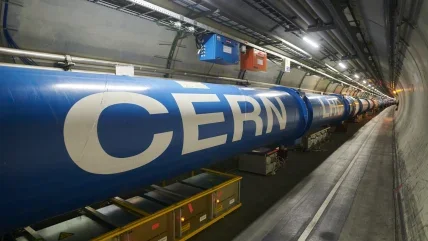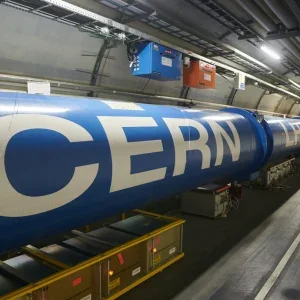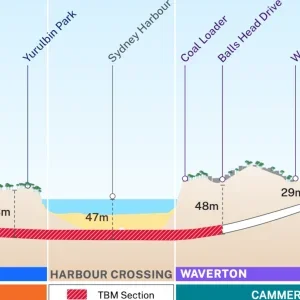
UK Research and Innovation has started procurement for a market survey of civil engineering consultancy services for CERN’s Future Circular Collider (FCC).
The market survey will cover civil engineering consultancy services for studies to be undertaken for the civil engineering design of the FCC in the Pre Technical Design Review phase.
The required services include:
- Numerical analysis of subsurface structures such as caverns, pre-cast lined tunnels, and shafts. Analysis to be carried out using the latest geotechnical data. Results to be presented in a report, along with drawings, showing optimised geometries and material properties.
- Assessment of the risk of TBM entrapment during excavation of the tunnels. Means of reducing the entrapment risk through the specification of TBM requirements will be presented.
- Technical feasibility of using a permanent shotcrete lining to replace the in situ concrete lining of subsurface structures. Report to summarise the feasibility of permanent shotcrete lining with benefits and risks presented.
- Risks and mitigation measures arising from tunnelling through water bearing molasse (faulted zones beneath watercourses). To include an assessment of the tunnel drainage requirements, use of waterproof linings and drainage weep holes. Report to summarise potential case studies, tunnelling methods, and application to the FCC project.
- Feasibility of using a single TBM to drive through both molasse and limestone geology.
- Report to cover TBM specifications, case studies where possible, and project requirements, risks and benefits.
- Risk and mitigation measures for tunnelling through karstic limestone with a TBM. Reporting on case studies, TBM requirements, risks and mitigations.
- Review of the FCC feasibility study construction schedule and associated costs. Analysis of the existing cost and construction schedule and a report to present the analysis, findings and recommendations.
- Assessment of the interactions between the FCC tunnel and existing surface infrastructure (for example, highways, railways and bridges). Report to conclude assessment and recommendations for risks and mitigation measures.
- Desktop study of existing Swiss tunnelling projects through molasse geology. Report to summarise a selection of case studies and to discuss the lessons learned from any difficulties encountered during construction.
The market survey will be followed by an invitation to tender to be sent to qualified and selected firms and groups of firms in Q4 2025 for a contract to commence in Q2 2026. The future invitation to tender will be adjudicated on a best-value-for-money basis.
The estimated contract value, excluding VAT, is CHF5m (€537.7m).
For more details on procurement of the market survey, click here.
The FCC is a proposed particle collider with a circumference of about 91km that could succeed CERN’s current flagship instrument – the 27km Large Hadron Collider (LHC) – in the 2040s. Its scientific motivation stems from the discovery of the Higgs boson in 2012, along with other crucial outstanding questions in fundamental physics.
In March this year, CERN and its international partners completed a feasibility study for the FCC. A major component was the layout and placement of the collider ring and related infrastructure, with the aim of maximising the scientific benefit while taking into account territorial compatibility, environmental and construction constraints and cost. No fewer than 100 scenarios were developed and analysed before settling on the preferred option: a ring circumference of nearly 91km at an average depth of 200m, with eight surface sites and four experiments.
The CERN Council will examine the feasibility study in November this year and is expected to make a decision on the project in 2028.







